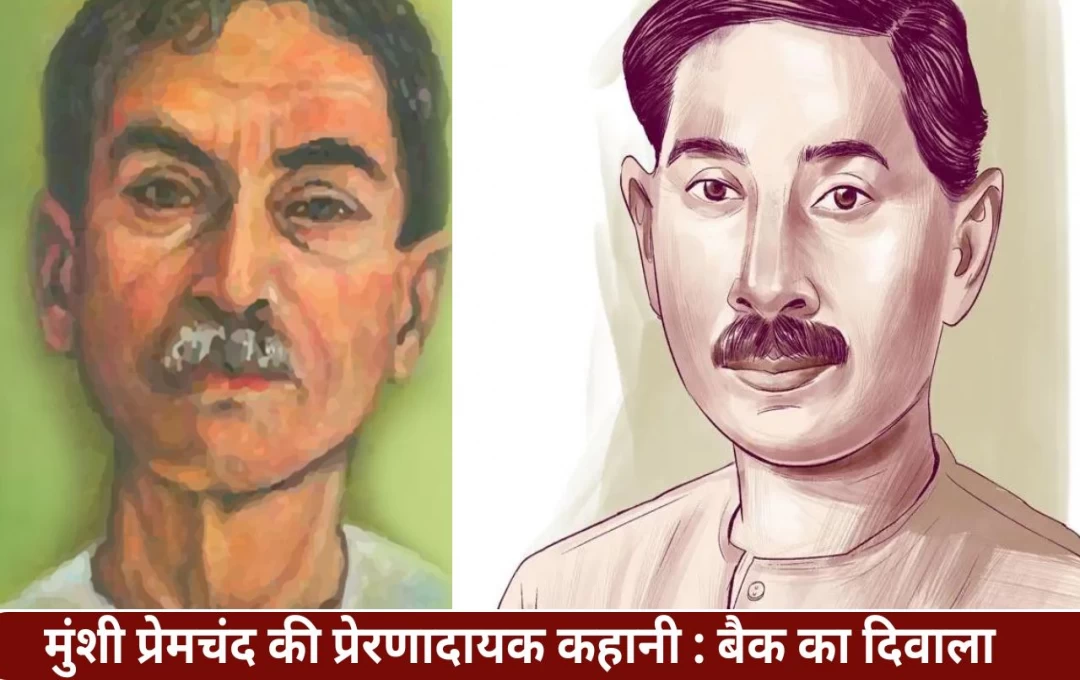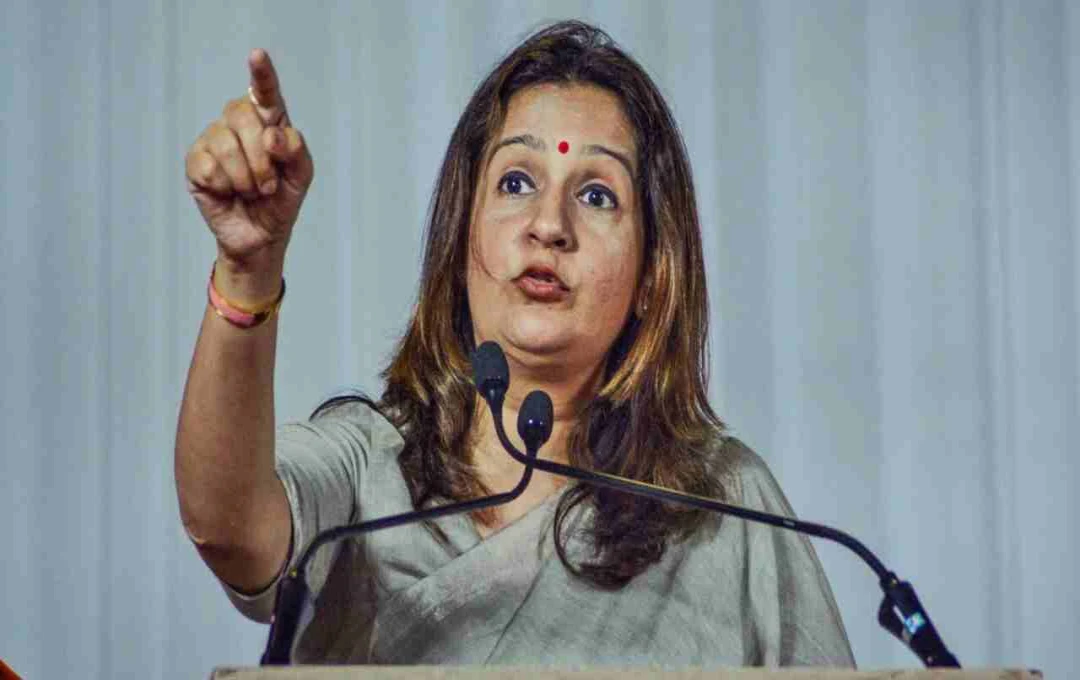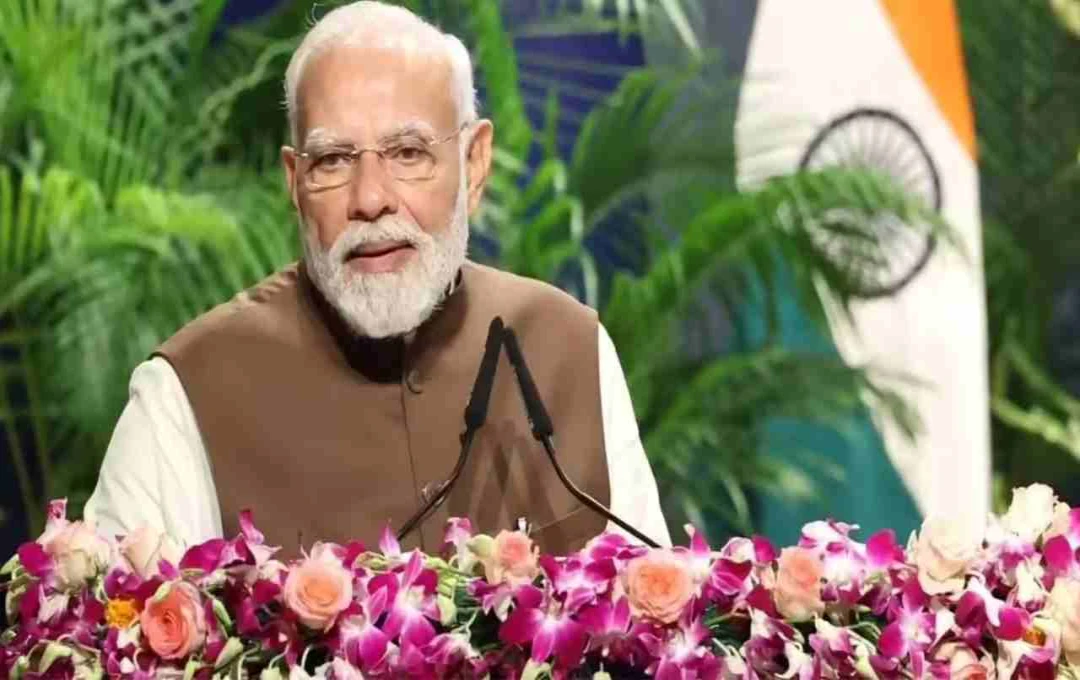Friends, our country has for centuries been the birthplace and land of countless great personalities brimming with virtues – sages, poets, writers, musicians, and many more. The thousands of works created by these luminaries are invaluable. Today's youth, in this digital age, seem to be losing their way, drifting further and further from our heritage and precious treasures. subkuz.com continuously strives to bring you these invaluable treasures alongside entertaining stories, news, and information from India and around the world. Presented here is one such invaluable and inspiring story by Munshi Premchand.
The Bank's Insolvency
In the Lucknow National Bank office, Lala Saindas lay reclined on a comfortable chair, examining share prices and pondering how to distribute profits to the shareholders this time. He considered buying shares in tea, coal, or jute, or speculating in silver, gold, or cotton; but the fear of loss prevented him from making any decision. This year, the jute trade had resulted in significant losses; he had to present a fabricated profit and loss statement to reassure the shareholders, paying the profits from the bank's capital. This made him hesitant to engage in the jute trade again.
However, leaving the money idle was impossible. He needed to find a suitable investment within a day or two; the quarterly meeting of the directors was scheduled for the following week, and if no decision was made by then, nothing could happen for the next three months, necessitating the same fraudulent accounting practices at the time of the half-yearly profit distribution, which was becoming increasingly difficult for the bank to sustain. After much deliberation, Saindas rang the bell. A Bengali Babu from the adjacent room peeked out.
Saindas – Write a letter to the Taj Steel Company asking for their new balance sheet.
Babu – They don't need money. They won't reply to the letter.
Saindas – Okay, write to the Nagpur Swadeshi Mill.
Babu – Their business isn't doing well. Their workers recently went on strike. The mill was closed for two months.
Saindas – Oh, write to someone then! In your opinion, the whole world
is full of dishonest people.
Babu – Sir, we can write to everyone; but just writing doesn't bring any profit.
Lala Saindas had become the Managing Director of the bank due to his family's reputation and prestige, but he was unfamiliar with practical matters. This Bengali Babu was his advisor, and the Babu had no faith in any factory or company. Due to this lack of trust, the bank's money hadn't been disbursed the previous year, and the same situation was repeating itself. Saindas couldn't find a solution to this difficulty. He lacked the courage to venture into any business on his own. In his anxiety, he began pacing the room when the doorman announced the arrival of the Maharani of Barhal.
Lala Saindas was taken aback. The Maharani of Barhal had arrived in Lucknow three or four days ago, and everyone was talking about her. Some were captivated by her attire, others by her beauty, and still others by her free-spirited nature. Even her maids and soldiers were the subject of public discussion. Crowds gathered at the gates of the Royal Hotel. Many curious onlookers, perfumers, merchants, and tobacco sellers had already caught a glimpse of her. Wherever the Maharani's procession passed, the onlookers would exclaim, "Wow! What magnificence! Such exquisite jewelry would rarely be seen even in the possession of royalty, and the decorations are exquisite! Such fair-skinned people aren't even seen here. The wealthy here indulge in various delicacies, but there's no radiance or glow on their faces. What do these people eat and drink that makes them look so radiant, like fresh apples? It must be the climate."
Barhal was a princely state in a British territory, situated north of Nepal. Although the public considered it very wealthy, its actual income was no more than two lakh rupees. However, it had a vast area. Much of the land was barren and desolate. The inhabited parts were also mountainous and barren. Land was very cheap.
Lala Saindas quickly changed into a silk suit and sat at his desk with dignity, as if the arrival of royalty were an ordinary event. The office clerks became alert. A hush fell over the bank. The doorman adjusted his turban. The watchman drew his sword and stood at his post. The punkah-wallah's sweet sleep was disturbed, and the Bengali Babu went outside to welcome the Maharani.
Saindas maintained an outward show of composure, but his mind was agitated with hope and fear. This was his first encounter with a queen; he was nervous about whether he would be able to converse appropriately. The temperament of royalty is unpredictable. He felt inadequate at this moment. He was unfamiliar with royal etiquette. How should he show his respect, what should he be mindful of in conversation, how much humility was appropriate to maintain decorum—these questions left him quite perplexed, and he wished to quickly get over this ordeal. He usually treated traders, minor landlords, or the wealthy with formality and clarity, and educated gentlemen with politeness and courtesy. On those occasions, he didn't need much thought; but this time, he was greatly troubled, like a Lankan in Tibet, unfamiliar with their customs and conversation.
Suddenly, his gaze fell upon the clock. It was four o'clock in the afternoon. But the clock was still lost in its midday slumber. The date hand had outpaced even time in its haste. He quickly got up to set the clock, when the Maharani entered the room. Saindas left the clock and stood beside the Maharani, unsure whether to shake hands or bow in greeting. The Rani herself extended her hand, relieving him of his dilemma.
Once they were seated, the Rani's private secretary initiated the conversation. After recounting the history of Barhal, he described the improvements made under the Rani's efforts. Ten lakh rupees were needed to construct a branch canal; but the Rani preferred to deal with an Indian bank. Now it was up to the National Bank to decide whether or not it wished to take advantage of this opportunity.
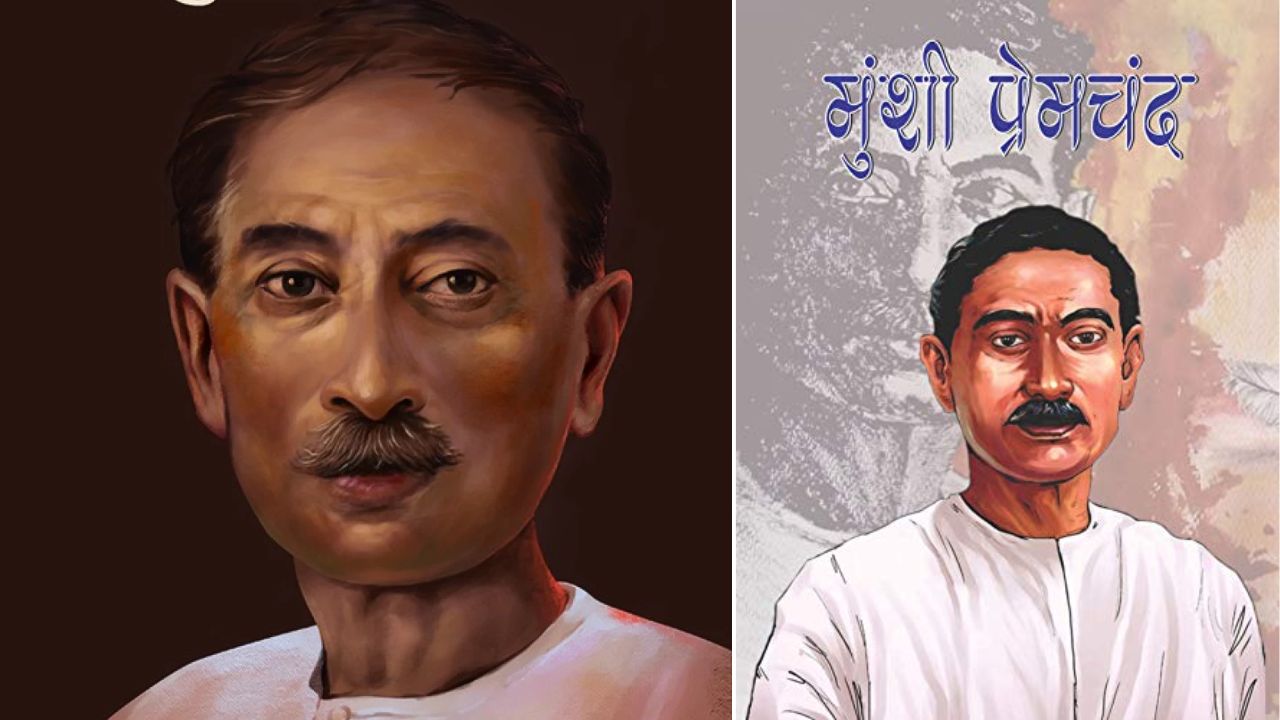
Bengali Babu – We can give the money, but we can't do anything without seeing the documents.
Secretary – Do you require any collateral?
Saindas generously replied – Sir, your word is sufficient collateral.
Bengali Babu – Do you have any accounts from the princely state?
Lala Saindas disliked his head clerk's worldly approach. He was intoxicated by generosity at this moment. The Maharani's presence itself was sufficient collateral. Discussing documents and accounts seemed like petty business to him, reeking of distrust.
In the presence of women, we become models of politeness and shyness. Saindas looked at the Bengali Babu with a stern gaze and said – Checking documents isn't necessary; we only need to trust.
Bengali Babu – The directors will never agree.
Saindas – We don't care; we can give the money on our own responsibility.
The Rani looked at Saindas with gratitude. A slight smile played on her lips.
However, the directors deemed it necessary to examine the profit and loss accounts, and this task was assigned to Lala Saindas, as no one else had the time to review the entire office's accounts. Saindas complied. He spent three or four days examining the accounts, then wrote a report to his satisfaction. The matter was settled. The documents were signed, and the money was disbursed. The interest rate was fixed at nine percent.
For three years, the bank's business thrived. Every six months, a bag containing forty-five thousand rupees would arrive at the office without prior notice. Traders were given five percent interest. Shareholders received a seven percent profit.
Everyone was pleased with Saindas. Everyone praised his judgment. Even the Bengali Babu gradually became a fan. Saindas used to tell him – Babu Ji, trust has not disappeared from the world, nor will it. It is every human's duty to have faith in truth. A person devoid of trust should be considered dead. He feels surrounded by enemies. Even the greatest saints appear to him as deceitful. Even the most patriotic person appears to him as hungry for praise. The world seems full of deceit and deception to him. Even his faith and devotion in God disappear.
A famous philosopher said, "Consider every person to be good until you find direct evidence against them." The current system of governance is based on this important principle. And one should not harbor hatred for anyone. Our souls are pure. To hate them is like hating God. I don't say that there is no deceit and deception in the world, there is, and in abundance, but it is remedied not by distrust but by knowledge of human nature, and this is a God-given quality. I don't claim this, but I believe I can understand a person's inner feelings by looking at them. No matter how much one changes their appearance or attire, they cannot deceive my insight.
It should also be noted that trust breeds trust, and distrust breeds distrust. This is a natural law. A person whom you consider cunning, deceitful, and wicked from the outset will never deal honestly with you. He will try to belittle you at the first opportunity. Conversely, if you trust even a thief, he will become your slave. He may rob the whole world, but he will not deceive you. No matter how wicked or sinful he is, by putting a chain of trust around his neck, you can lead him wherever you want. To the extent that he can even become a virtuous soul in your hands.
The Bengali Babu had no answer to these philosophical arguments.
It was the first day of the fourth year. Lala Saindas sat in the bank office, waiting for the postman. Forty-five thousand rupees were expected from Barhal today. This time, he intended to buy some decorative items. The bank still didn't have a telephone. He had also ordered one. A gleam of hope shone on his face. He jokingly said to the Bengali Babu – On this date, my hands start to itch. My palm is itching today too. Sometimes he would say to the office staff – Hey Miyan Sharafat, let's consider the omen; is it just interest, or is there a token of appreciation for the office staff as well? The influence of hope sometimes has its effects. Even the bank seemed open today.
The postman arrived on time. Saindas glanced at him casually. He took out several registered envelopes from his bag. Saindas looked at the envelopes with a fleeting glance. There was no envelope from Barhal, no registered mail, no seal, no familiar handwriting. A sense of disappointment arose. He wanted to ask the postman if any registered mail was left behind, but he hesitated; such impatience was inappropriate in front of the office clerks. But when the postman was about to leave, he couldn't help himself. He asked – Hey brother, wasn't there any registered envelope? It should have arrived today. The postman said – Sir, is such a thing possible? And even if there was a mistake somewhere, how could there be a mistake in your matter?
Saindas's face fell, like water falling on unbaked paint. When the postman left, he said to the Bengali Babu – Why was this delayed? This never happened before.
The Bengali Babu replied impassively – It must have been delayed for some reason. There's nothing to worry about.
Despair makes the impossible possible. At this moment, Saindas thought that perhaps the money was coming by parcel. Perhaps a parcel containing three thousand ashrafis had been sent. Although he didn't dare to reveal this thought to others, he held on to this hope until the parcel carrier returned. Finally, in the evening, he got up anxiously and left. Now he waited for a letter or telegram. Two or three times he got up irritably, thinking, "I'll write a letter and clearly state that failing to keep a promise in business matters is a betrayal. Even a day's delay can be fatal for the bank. This will ensure that such a complaint will never be made again," but after further thought, he did not write.
Evening arrived, and several friends came. Conversation began. Then the postman delivered the evening mail. Usually, he opened the newspapers first, but today he opened the letters, but there was no letter from Barhal. Then, breathlessly, he opened an English newspaper. Upon seeing the headline of the telegram, his blood ran cold. It read:
‘The Maharani of Barhal passed away last evening after a three-day illness.’
Further down, a short note stated – ‘The untimely death of the Maharani of Barhal is a tragic event not only for this princely state but for the entire province. Even the most skilled physicians could not diagnose the disease before death claimed her. The Rani always kept the progress of her princely state in mind. The benefits her princely state received during her short reign will be remembered for a long time. Although it was understood that the state would pass into other hands after her, this consideration never hindered the Rani in her duties. According to the scriptures, she did not have the right to take loans on the security of the state, but due to her concern for the welfare of her people, she was often forced to violate this rule. We believe that if she had lived a few more days, she would have freed the state from debt. She constantly kept this in mind. But this untimely death has now left this decision to others. It remains to be seen what will be the outcome of these debts. We have reliably learned that the new Maharaja, who is currently residing in Lucknow, has, in accordance with the advice of his lawyers, refused to repay the debts of the deceased Maharani. We fear that this decision will cause great unrest among the moneylenders and will teach many wealthy people of Lucknow how harmful greed for interest is.’
Lala Saindas placed the newspaper on the table and looked towards the sky, the ultimate refuge of despair. Other friends also read this news. A debate ensued on this issue. Saindas was blamed on all sides, and his lifelong efficiency and farsightedness were forgotten. The bank was unable to bear such a huge loss. The thought arose of how to protect his life.
As soon as this news spread through the city, people became anxious to withdraw their money. There was a constant stream of creditors, morning and evening. Those whose money was deposited in current accounts immediately withdrew it, without any explanation. This was the result of the newspaper article – the National Bank's credibility had plummeted. If they had acted with patience, the bank could have recovered. But which boat can remain stable in a storm? Finally, the treasurer declared bankruptcy. So much blood was drained from the bank's veins that it became lifeless.
Three days had passed. Thousands of people had gathered in front of the bank's house. Armed soldiers guarded the bank's gates. Various rumors were circulating. Sometimes the news would circulate that Lala Saindas had committed suicide. Someone would bring news of his arrest. Someone would say – The directors have been imprisoned.
Suddenly, a motorcar emerged from the street and stopped in front of the bank. Someone said – It's the Maharaja of Barhal's motorcar. Hearing this, hundreds of people rushed towards the motorcar and surrounded it.
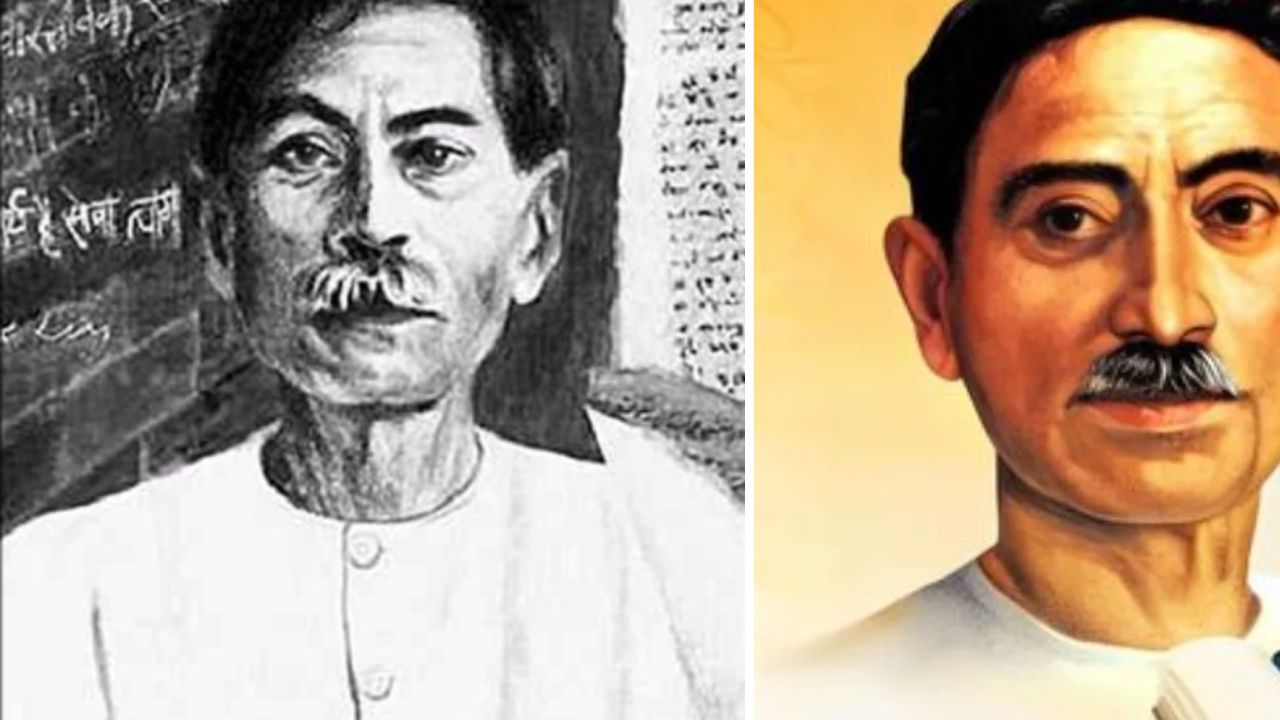
Kunwar Jagdish Singh had come to Lucknow to consult with lawyers after the Maharani's death. He also had to buy many things. The desires that had long been waiting for such an opportunity were boiling up like water finding a path. He had just bought this motorcar. He was in talks to buy a mansion in the city. A carriage loaded with precious luxury items had already left for Barhal. Seeing the crowd, he thought some new drama was about to unfold and stopped the motorcar. In a moment, hundreds had gathered.
Kunwar Sahib asked – Why are you all gathered here? Is there some kind of show going on?
A gentleman, who appeared to be a somewhat disheveled nobleman, replied – Yes sir, a very interesting show.
Kunwar – Whose show is it?
It's fate's.
Kunwar Sahib was surprised by this answer, but he had heard that the people of Lucknow are fond of wordplay; therefore, he needed to respond in kind. He said – One doesn't need to come here to see fate's game.
The Lucknow gentleman said – You're right, sir, but where else can you find such entertainment? Here, between morning and evening, fate has transformed many from rich to poor, and from poor to beggars. The people who sat in palaces this morning are now struggling to get bread. Just a week ago, those who considered fate's game and the vagaries of time to be poetic metaphors, their cries and wails now shame even the heartbroken. Where else can you see such spectacles?
Kunwar – Sir, you've made the riddle even more complex. I'm a country bumpkin; speak to me plainly.
Then the gentleman said – Sir, this is the National Bank. It has gone bankrupt. Do you recognize me?
Kunwar Sahib looked at him, jumped out of the motorcar, and shaking his hand, said – Oh, Mr. Naseem? You here? Brother, I'm delighted to meet you.
Mr. Naseem had studied with Kunwar Sahib at Dehradun College. Both used to roam the hills of Dehradun together, but since Kunwar Sahib had left college due to family issues, the two friends hadn't met. Naseem also came to Lucknow to his home soon after Kunwar Sahib.
Naseem replied – Thank goodness you recognized me. Well, it's a dire situation now. My friends are also in trouble.
Kunwar – To tell you the truth, I always used to think of you. Tell me, are you doing okay? I'm staying at the Royal Hotel, come today, and let's have a good chat.
Naseem – Sir, peace is gone with the National Bank. Now, I'm worried about my livelihood. Whatever capital I had is gone. This bankruptcy has made me a pauper. Now I will come to your doorstep and sit in protest.
Kunwar – You have a home; come freely. Why don't you come with me? Let me tell you, I had no idea that my refusal would have this consequence. It seems the bank has ruined many.
Naseem – There is mourning in every house. I have nothing left but these clothes.
At that moment, a ‘tika-dhari Pandit’ arrived and said – Sir, you have clothes on your body. Here, there is no shelter, neither earth nor sky. I am a teacher at the Raghoji Pathshala. All the school's funds were deposited in this bank. Fifty students relied on it for their education and meals. The school will close from tomorrow. The students are from faraway places. God knows how they will reach home.
A gentleman with a Punjabi-style turban, a dark coat, and chappals stepped forward with a leadership demeanor and said – Sir, this bank's failure has destroyed many institutions. Lala Dinanath's orphanage cannot function for even a day now. One lakh rupees of its funds are gone. Fifteen days ago, I returned from a deputation and deposited fifteen thousand rupees in the orphanage fund, but now there is no trace of even a paisa.
An old man said – Sir, my life's earnings are gone. I don't even have the money for my shroud.
Gradually, more people gathered, and casual conversation began. Each person started sharing their woes with those around them. Kunwar Sahib stood there for half an hour listening to these stories of misfortune. As he was about to get into the motorcar and order the driver to proceed to the hotel, his gaze fell upon a man sitting with his head bowed to the ground. This was a shepherd who had played with Kunwar Sahib in his childhood. At that time, there was no thought of high and low; they played kabaddi, climbed trees together, and stole birds' nests. When Kunwar Sahib went to Dehradun to study, this shepherd boy, Shivdass, went to Lucknow with his father. He had opened a milk shop here. Kunwar Sahib recognized him and called out loudly – Hey Shivdass, look here.
Shivdass heard the voice, but did not lift his head. He was sitting there watching Kunwar Sahib. Those childhood days were coming back to him—when he played gulli-danda with Jagdish, when they teased old Ghafoor Mian and hid in the house, when he used to beckon Jagdish away from the teacher, and both would go to see Ramlila. He believed that Kunwar Sahib would have forgotten him; those childhood days—where was he, and where was this? But when Kunwar Sahib called out his name, he happily bowed his head even lower and wanted to leave. Kunwar Sahib's compassion lacked equality. But seeing him move away, Kunwar Sahib got down from the motorcar, held his hand and said – Hey Shivdass, have you forgotten me?
Now Shivdass could no longer restrain his emotions. His eyes welled up. He clung to Kunwar's neck and said – I haven't forgotten you, but I feel shy in front of you.
Kunwar – Do you run a milk shop here? I didn't even know. Come, sit in this motorcar. Let's go to the hotel together. I feel like talking to you. I'll take you to Barhal, and we'll play gulli-danda again.
Shivdass – Please don't do that; otherwise, people will laugh. I'll come to the hotel. You're staying at the Hazratganj hotel, aren't you?
Kunwar – Yes, you'll come, won't you?
Shivdass – If you invite me, and I don't come?
Kunwar – How are you sitting here? Is your shop still running?
Shivdass – It was running until this morning. I don't know about the future.
Kunwar – Was your money also deposited in the bank?
Shivdass – I'll tell you when I come.
Kunwar Sahib got into the motorcar and told the driver – Go towards the hotel.
Driver – You had ordered to go to the Whiteway Company shop.
Kunwar – I'm not going there now.
Driver – Won't you go to Mr. Jacob, the barrister's place either?
Kunwar – (Irritably) No, don't go anywhere. Take me straight to the hotel.
These scenes of despair and misfortune had raised this question in Jagdish Singh's mind – what is my duty now?
Seven years ago, when the Maharaja of Barhal died in his youth after falling from a horse, and the question of inheritance arose, due to the Maharaja having no children, his paternal cousin, Thakur Ramsingh, was entitled to the inheritance. He claimed it, but the courts declared the Rani as the rightful heir. Thakur Sahib appealed, even went to the Privy Council, but to no avail. Millions of rupees were wasted in litigation; his own property was also lost, but even in defeat, he did not sit in peace. He always harassed the widowed Rani. Sometimes he would incite the tenants, sometimes he would slander the Rani to the tenants, sometimes he would try to trap her in false cases, but the Rani was a woman of great spirit. She would also give a fitting reply to Thakur Sahib's every attack. Yes, in this tug-of-war, she had to spend large sums of money. Since she could not collect money from the tenants, she had to borrow money repeatedly, but according to the law, she did not have the right to borrow money. Therefore, she had to either hide this arrangement or accept a high rate of interest.
Kunwar Jagdish Singh's childhood was spent in pampering and affection, but when Thakur Ramsingh became very distressed by the litigation and it became a suspicion that Kunwar Sahib's life might be in danger due to the Rani's schemes, he was forced to send Kunwar Sahib to Dehradun. Kunwar Sahib stayed there happily for two years, but as soon as he reached the first class of college, his father passed away. Kunwar Sahib had to leave his studies. He came to Barhal, burdened with the responsibility of supporting his family and carrying on the old enmity with the Rani. From that time until the Maharani's death, his condition deteriorated significantly. He had no support except loans and the women's jewelry. He also had the concern of upholding his family's honor. These three years were a time of great trial for him. He had to deal with moneylenders every day. His heart was pierced by their ruthless arrows. He had to endure the harsh treatment and tyranny of officials, but the most heartbreaking was the behavior of his relatives, who would stab him in the back instead of confronting him directly, working their deceit under the guise of friendship and unity. These harsh ordeals had made Kunwar Sahib an enemy of authority, autocracy, and wealth. He was a very sensitive man. The unkindness of relatives and the wickedness of countrymen left a dark mark on his heart; his love of literature made him an explorer of human nature, and where this knowledge took him away from civilization every day, it strengthened his ideas of popular sovereignty and communism. He had realized that if good conduct exists, it is only among the poor and the downtrodden. During that difficult time, when darkness loomed everywhere, he sometimes caught a glimpse of true sympathy. He did not consider wealth to be a blessing but a wrath of God that erases compassion and love from the human heart. It is a cloud that overshadows the bright stars of the mind.
But as soon as wealth attacked him after the Maharani's death, this shield of philosophical arguments crumbled. His power of self-reflection was destroyed. He became friends with those who were like enemies, and the true well-wishers were forgotten. A drastic change began in his communistic thoughts. Intolerance arose in his heart. Sacrifice bowed before enjoyment, the shackles of decorum were around his neck. The officials, at whose sight his demeanor changed, now became his advisors. He would now close his eyes when seeing the poverty and destitution towards which he had true sympathy.
There is no doubt that Kunwar Sahib was still a devotee of communism, but he did not have the same freedom as before in expressing those ideas. Thoughts were now afraid of action. He had the opportunity to translate his statements into action, but now the field of action seemed surrounded by difficulties. He was an enemy of forced labor, but now ending forced labor seemed difficult. He was a devotee of cleanliness and hygiene, but now he feared opposition from the villagers even without spending money. He considered harsh treatment in collecting taxes from tenants to be a sin, but now he felt that work could not be done without harshness. In short, many principles in which he previously had faith now seemed irrelevant.
But the distressing scenes that he witnessed at the bank awakened his compassion. He became like a man sitting in a boat enjoying the beauty of the picturesque shore, who comes before a crematorium, sees the bodies burning on the pyre, hears the cries of the mourners, and gets down from the boat to share their grief.
It was ten o'clock at night. Kunwar Sahib was lying on his bed. The scene at the bank was dancing before his eyes. The same sounds of lamentation were coming to his ears. The question arose in his mind, am I the reason for this irony? I did what I had the legal right to do. This is the fault of the bank's managers, who gave such a large loan without any collateral. The creditors should measure their wrath against the bank's managers. I'm not a divine judge, that I should suffer the consequences of others' folly. Then his thoughts changed, I am staying in this hotel unnecessarily. I will have to pay forty rupees a day. About four hundred rupees will be spent. So much stuff is also taken in vain. What was the need? My dignity cannot be enhanced by velvet-cushioned chairs or glass decorations. If one rented a simple house for five rupees, wouldn't it work? I and all those with me would live comfortably, wouldn't they, if people wouldn't criticize it? What is the concern? The people against whom I am showing this pomp are starving. I could have used these ten to twelve thousand rupees to build a well, benefiting thousands of the needy. I will not fall into people's traps again. This motorcar is useless. My time is not so expensive that I should increase the expenditure of two hundred rupees for saving an hour or half an hour. Running before the starving tenants is like pouring salt on their wounds. It may be that they will come to respect me; wherever I go, hundreds of women and children will stand to see me, but increasing this expenditure just for such a show is foolish. If other nobles do it, let them do it; why should I match them? Until now, my livelihood was managed with two thousand rupees a year. Now, four thousand is more than enough instead of two. Besides, what right do I have to squander others' earnings in this way? I do not do any industry or business, the profit of which is this. If my people have forcefully taken over the area by force, what right do I have to share in their loot? Those who work should get the full fruit of their labor. The state only protects them from the harsh hands of others. They should get proper compensation for this service. I am only appointed to collect this compensation from the state. Besides this, I have no other share in the earnings of these poor people. These poor people are helpless, foolish, voiceless; at this time, we can torment them as much as we want. They do not know their rights. I do not understand my importance, but a time will surely come when they will have a voice, they will also know their rights. Then our condition will be bad. These luxuries keep me away from my people. It is in my best interest to stay among them, to make a living like them, and to help them. If there were a small amount of money, I would say, 'Bring it; the head that bears much weight bears this as well'. Besides the principal, many thousands of rupees were separated as interest. Then there are three lakh rupees of the moneylenders.
The princely state's income is one and a half to two lakh rupees annually, no more. Even if I dared, on what basis? Yes, if I become an ascetic, it is possible; in my life – if I do not die suddenly – this dispute will end. To jump into this fire is to burn my entire life, my aspirations, and my hopes. Ah! What hardships I did not suffer in anticipation of these days. My father died in this worry. This auspicious moment was a distant lamp for our dark night. We lived on the basis of this. Sleeping and waking, there was always talk of this. It gave the mind so much satisfaction and pride. Even during the days of hunger, our behavior was not bad. When good days came after so much patience and satisfaction, how can I turn away from it? Besides my own concern, I have thought of many schemes for the progress of the state. Should I abandon those thoughts along with my desires? This unfortunate Rani trapped me badly; she never let me rest while she was alive. After her death, she left this calamity on my head. But why am I so afraid of poverty? There is no sin. If my sacrifice saves thousands of families from suffering and misery, I should not turn away from it. Spending life only in pleasure is not our goal. Our honor, prestige, and fame do not come from mere enjoyment. Who knows the rulers of palaces and the kings who indulge in luxuries? It is their self-sacrifice and rigorous austerities that have made them the sun of our race.
If Shri Ramchandra had spent his life in pleasure, we would not even know his name today. His self-sacrifice alone made him immortal. Our reputation does not depend on wealth and luxury. Whether I ride a motorcar or a pony, whether I stay in a hotel or a humble house, at most, the officials will laugh at me. I don't care. I sincerely want to stay away from those people. If such criticism benefits hundreds of families, I would not be human if I did not bear it gladly. If, by renouncing my horse and hunting, my servants, attendants, and self-serving friends, I can benefit thousands of rich and poor families, widows and orphans, then I should not delay. The fate of thousands of families is in my hands. My enjoyment is poison for them, and my self-control is nectar for them. I can be nectar, why should I be poison? And besides, considering this as self-sacrifice is my mistake. It is a coincidence that I am the ruler of this estate today; I did not earn it. I did not shed blood for it. I did not sweat for it. If I had not inherited the estate, I would be engaged in earning my livelihood today like thousands of poor brothers. Why shouldn't I forget that I am the ruler of this state? It is on such occasions that a person is tested. For years, I have studied books and have been a follower of the principles of charity. If I forget those principles at this time, and let selfishness outweigh humanity and morality, it will, in fact, be my utmost cowardice and selfishness. What was the need to become a disciple of Gita, Mill, Emerson, and Aristotle for the lesson of selfishness? I could have gotten this lesson from my other brothers. What other teacher was there greater than the prevailing custom? Should I, too, bow before selfishness like ordinary people? What then was the distinction? No, I will not violate my conscience. Where I can do good, I will not do evil. Oh Lord, help me, you have given me birth in a Rajput family. Do not shame this great caste by my actions. No, never. This neck will not bend before selfishness. I am a descendant of Ram, Bhishma, and Pratap. I will not become a servant of the body.
At this moment, Kunwar Jagdish Singh felt as if he had climbed a high tower. His mind was filled with pride. His eyes were radiant. But in a moment, this excitement began to subside; his eyes went down from the high tower. His whole body trembled. He became like a man sitting on the bank of a river, contemplating jumping into it.
He thought, will my family members agree with me? Even if they agree because of me, do I have the right to sacrifice their desires along with mine? Moreover, my mother will never agree, and perhaps my brothers will also refuse. Considering the condition of the princely state, they are shareholders with an annual income of less than a thousand rupees. And I cannot interfere in their share in any way. I am only my own master, but I am not alone either. Savitri herself may be ready to jump into the fire with me, but she will never let her beloved son come near this fire. Kunwar Sahib could not think any further. He got up anxiously from the bed and started pacing the room. After a while, he looked outside the window and went out opening the door. It was dark all around. Like his worries, an endless and terrifying river was flowing in front of him. He slowly went to the bank of the river and paced there for a long time. An anxious heart loves water waves. Perhaps because the waves are anxious. He focused his fickle mind again. If all these allowances are given from the state's income, then it will also be difficult to
